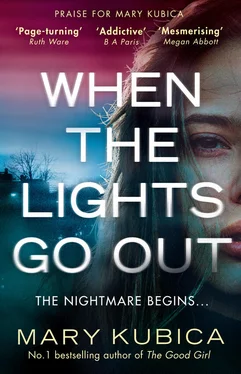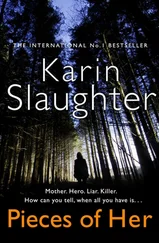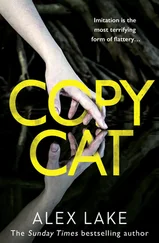“Just wait until you’re a mother,” she said. “Then you’ll see,” while hoisting her bare feet onto my patio chair and drinking her lemonade.
And then when adorable little Paul ran over and made every attempt to scamper onto her lap, hot and sweating, Miranda shirked away, saying, “Come on, buddy, it’s too hot for laps today,” while pushing him off as if he was some sort of bug who’d landed on her legs.
In that moment, what I wanted to do—what I ought to have done—was pull him up onto my own lap. Let him rest his tiny head on my shoulder for a while. He was tired too, in addition to hot and sweating, his eyes begging for a cool bath and his afternoon nap, though Miranda was too busy whining about the drudgery of motherhood and wasn’t yet ready to leave.
Suddenly I wanted to feel the weight of him on my own two legs; I craved the heat of his skin on mine. I wanted to press those blond curls away from his eyes.
I’ve started noticing kids with more frequency lately. Little kids, big kids. Babies. Kids at the park. Kids at the market. Kids walking down the streets of town, holding hands with their fathers and mothers. It seems everyone in the world suddenly had kids, everyone but Aaron and me.
Had they been there all along and I failed to notice?
Or did they arrive just then and there the moment Aaron and I decided to conceive?
I didn’t welcome Paul onto my lap as I wanted to do, but watched instead as he pouted and walked away, forced off Miranda’s lap with her own two hands. His eyes were downcast, his bottom lip thrust out. He cried, not big crocodile tears but rather quiet and ashamed tears, the tears of someone who’d been told one too many times not to cry.
And, as he disappeared to a corner of the yard to be sad, Miranda released a massive sigh of relief, grateful Paul was gone and she could once again breathe.
August 14, 1996 Egg Harbor
It’s starting to become apparent that sex alone doesn’t lead to a baby.
When I woke this morning with blood dotting the inside of my underwear, my belly seized by a cramp, I knew another month had come and gone without a child. After the second month of trying, that blood in my underwear came as a startling blow, and there in the bathroom, hunched over the toilet seat, staring at the candy-apple red flecks on the lining of my favorite lace underwear, I began to sob. I kept it quiet and stifled, so that Aaron, in the kitchen brewing our morning coffee, couldn’t hear. I didn’t want him to know that I was upset. For whatever reason, I’d convinced myself over the last few days that every single twitch and prick I felt were the earliest signs of pregnancy. The tenderness in my chest, the desire to lay waste to almost everything I could find in the pantry, especially that which was high calorie, high fat.
These weren’t signs of pregnancy after all, but rather signs of my period. The same ones I’d felt every single month for the last fifteen years of my life, since the middle of seventh grade when I started my period in science class, red blood seeping through a pair of white jean shorts. And now my biological clock had only convinced me I was pregnant. I’d been sure I was nauseated, morning sickness already , when what it was was a change in hormones, my uterus clearing the decks, paving the way, getting ready to welcome a life that wouldn’t be.
I feel empty now, robbed of something that was mine, but why?
How can I grieve for something I never had?
After Aaron left for work, I scrubbed my underwear clean with detergent and bleach and headed into town. I couldn’t bring myself to tell him about the blood. Of course we don’t much talk about babies and pregnancy or use words like ovulation or conceive . Ostensibly, we just have sex, though inwardly what I’m thinking about, what we’re both thinking about, as we lie together in the moments afterward, my head draped across his chest, his warm hands massaging me, moving yo-yo-like up and down my back, is the end product, our handiwork, our creation, Aaron and me coming together, the best of him and the best of me fusing to create a baby.
I know he wants this as much as I do.
Only one time did Aaron whisper to me as we lay there in the darkness of the bedroom, still trying hard to catch our breaths after we were through, that he wondered what she would look like and when I asked, “Who?” he said, “Our baby girl. Our baby girl.” I beamed there from ear to ear and when I told him I didn’t know, he said, “I bet she’ll look like you.”
And then he kissed me slowly and deeply, the kind of kiss I felt all the way to my every extremity, and though he didn’t say it, I knew that in Aaron’s eyes if our baby girl looked like me, that she’d be the most beautiful girl in the world.
In all my life no one has ever made me feel as special as Aaron makes me feel.
I’ve watched him garden, watched the way he carefully carries the peat pots from greenhouse to garden, his every move screaming of paternal instinct; the way he digs the perfect holes, assessing their dimensions twice for accuracy; the way he lays the tiny biodegradable contraptions inside as if setting an infant in a crib, scattering soil over the top as gently as drawing a blanket to a sleeping child’s chin. He waters and watches and waits, and as he does, I watch him, this solid figure who, by his stature alone should be anything but gentle and soft-spoken, and yet he is. He wears his chestnut hair short these days, easier to hide behind the chef’s cap so there can be no false claims of hair in food, at least not from him, his hands and forearms marked with a selection of scratches and burns. For as long as I remember, he’s had them, those scratches and burns: badges of honor, war wounds dating back to his culinary school years.
There are times I find that I can’t take my eyes off those scars.
Each time he steps carefully through the garden, tending the seeds, careful not to step on our seedlings, it strikes me what a good father Aaron will one day be, so patient, so protective, so loving, the way he is with me.
And so, to say the words aloud now, to tell him I’ve started my period, would be to confess to Aaron that though we tried again this month, tried to conceive a baby, we failed.
After I wiped my eyes, I joined him on the dock for coffee and together we watched the boats pass by and shortly before two o’clock, as always, he left for work and again I was alone.
jessie
Everything changes with the break of day.
As the sun rises, gliding over the horizon, the world turns bright. The oppressive burden of night disappears. For the first time in eight long hours, I can breathe.
In daylight, I find myself standing above the floor register on the bedroom floor, feet straddling it. I stare down at the black rectangle between my legs. There’s nothing ominous about it; it’s just an ordinary metal grate, cold now, the furnace no longer producing heat. I rub at my arms in an effort to warm them up.
I shower and dress and head out into the day. Outside it’s a cold start, no more than forty degrees that will rise up to sixty-five by midday. The sky is blue for now, though there’s rain in the forecast. The grass is wet with dew. My fingers are cold as I lock the door.
From where I stand, I catch a glimpse of my landlord through the window of her own kitchen. It’s the back of her, just a pouf of hair and the ribs of a blue sweater before they meet with the wooden slats of a chair. It is a distorted image at best, muddled by the reflection of the outside world on glass. She doesn’t see me.
I could knock on the door, make an introduction, but that really isn’t my thing.
I round the side of the carriage home, gathering Old Faithful from the alleyway where I left her, leaned up against the side of the home. Ivy grows up the brick of the garage, the leaves starting to turn red. The alley is abandoned. There is nothing more than garage doors and Dumpsters here. City of Chicago garbage bins. No people. No rats. No feral cats. No signs of life anywhere. I settle Mom and her urn into the basket on back, nothing more than a metal milk crate that I keep secure with bungee cords. We set off down the street.
Читать дальше












